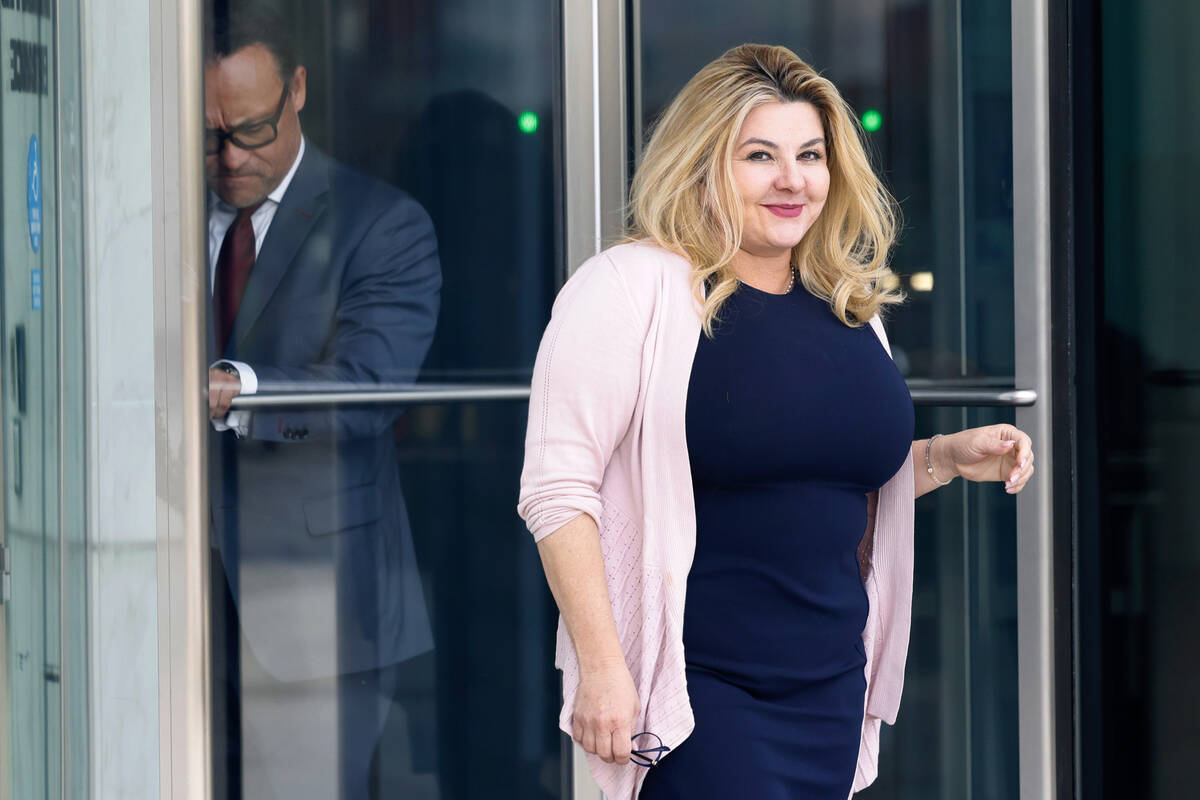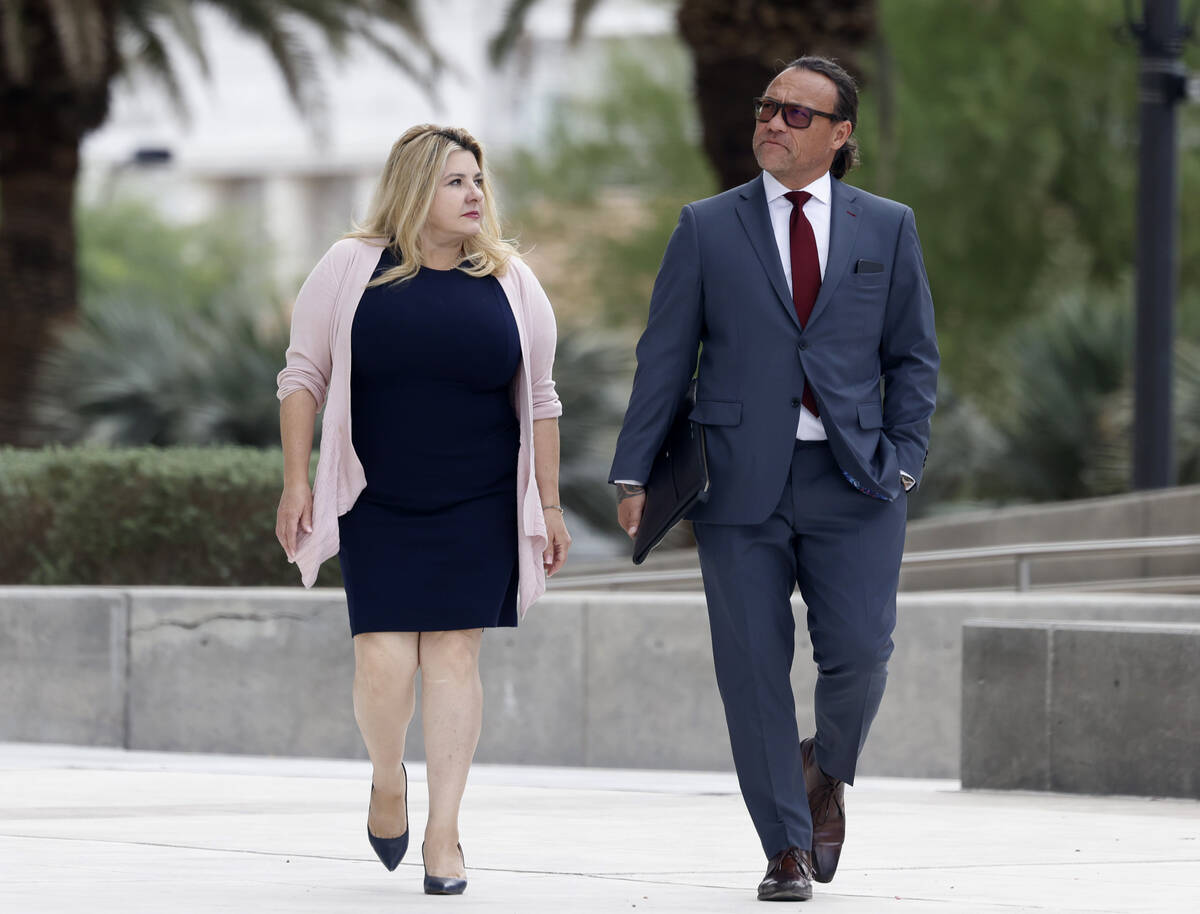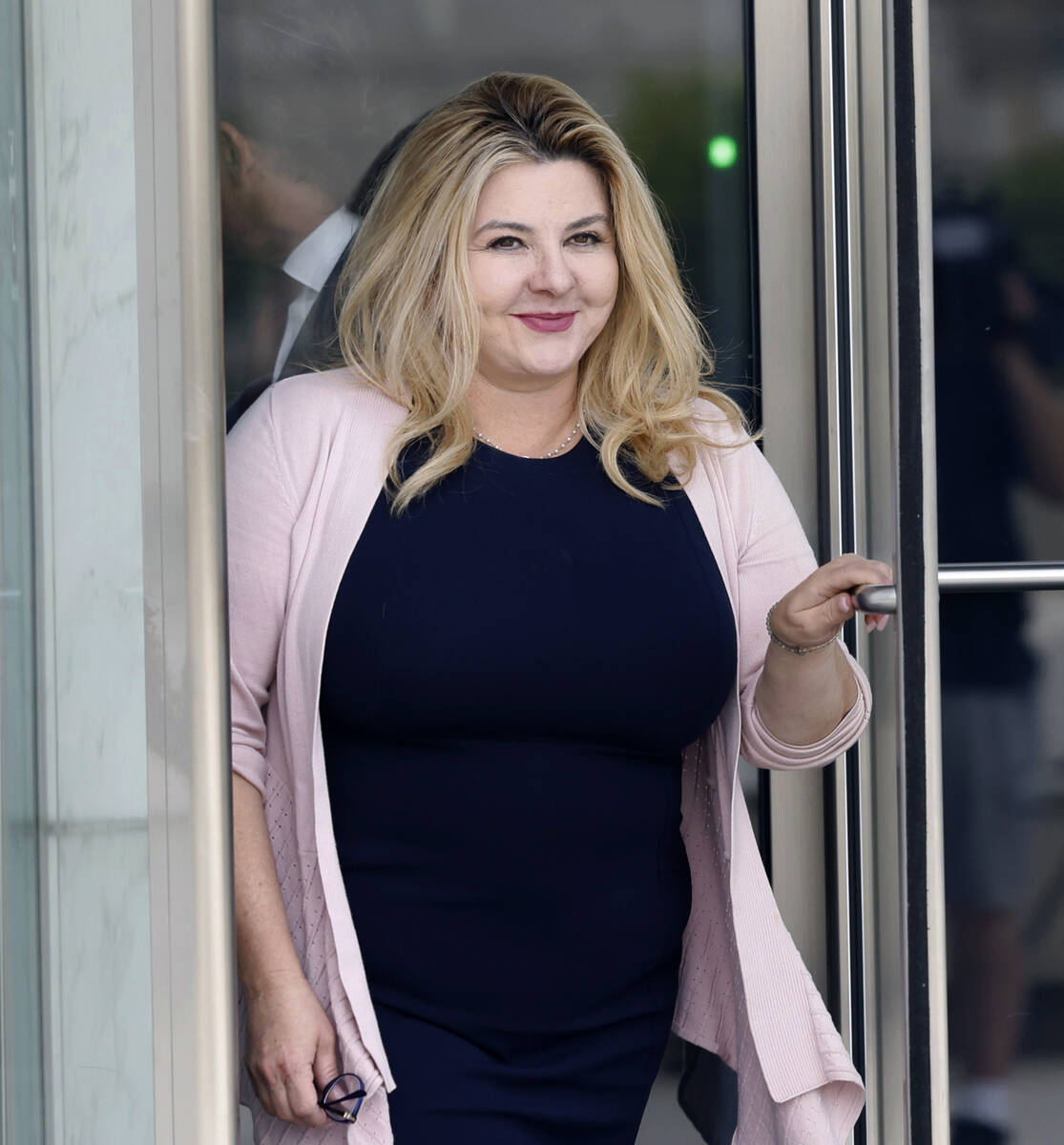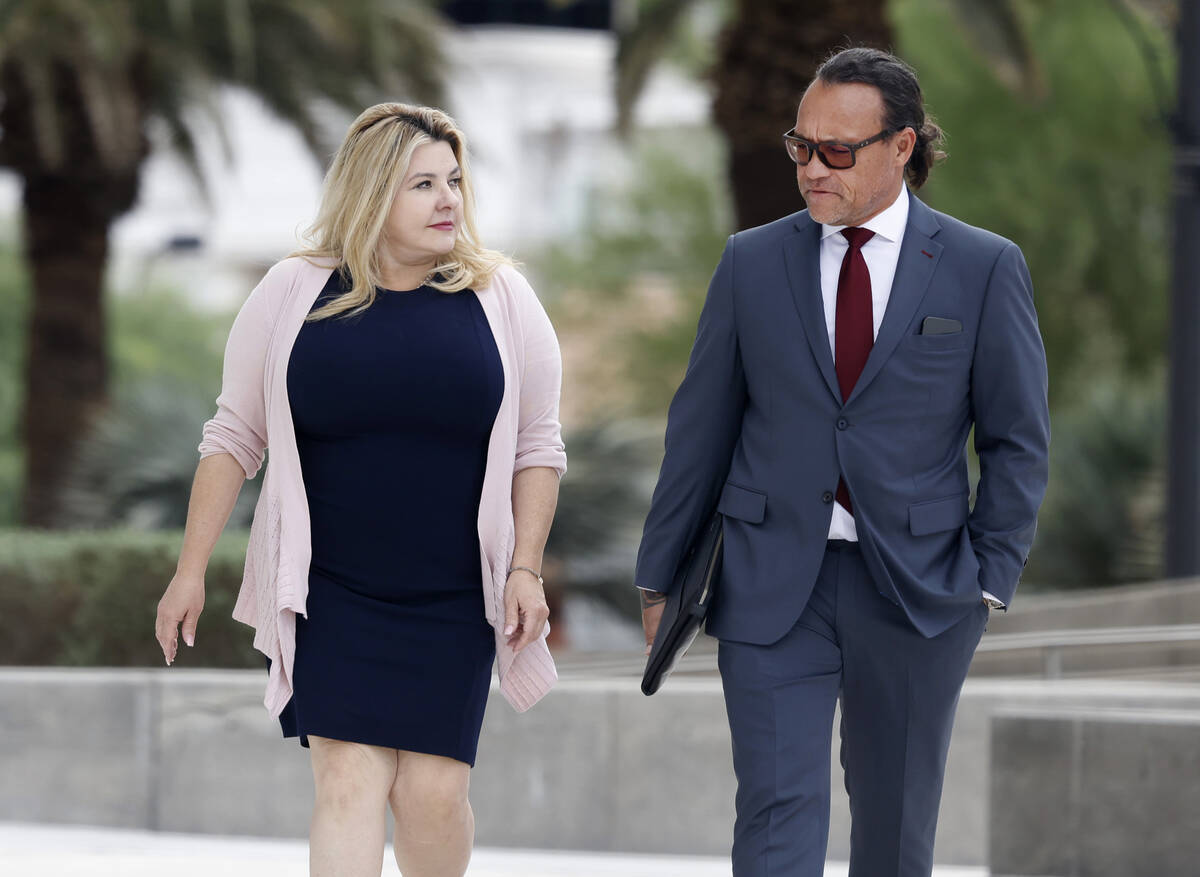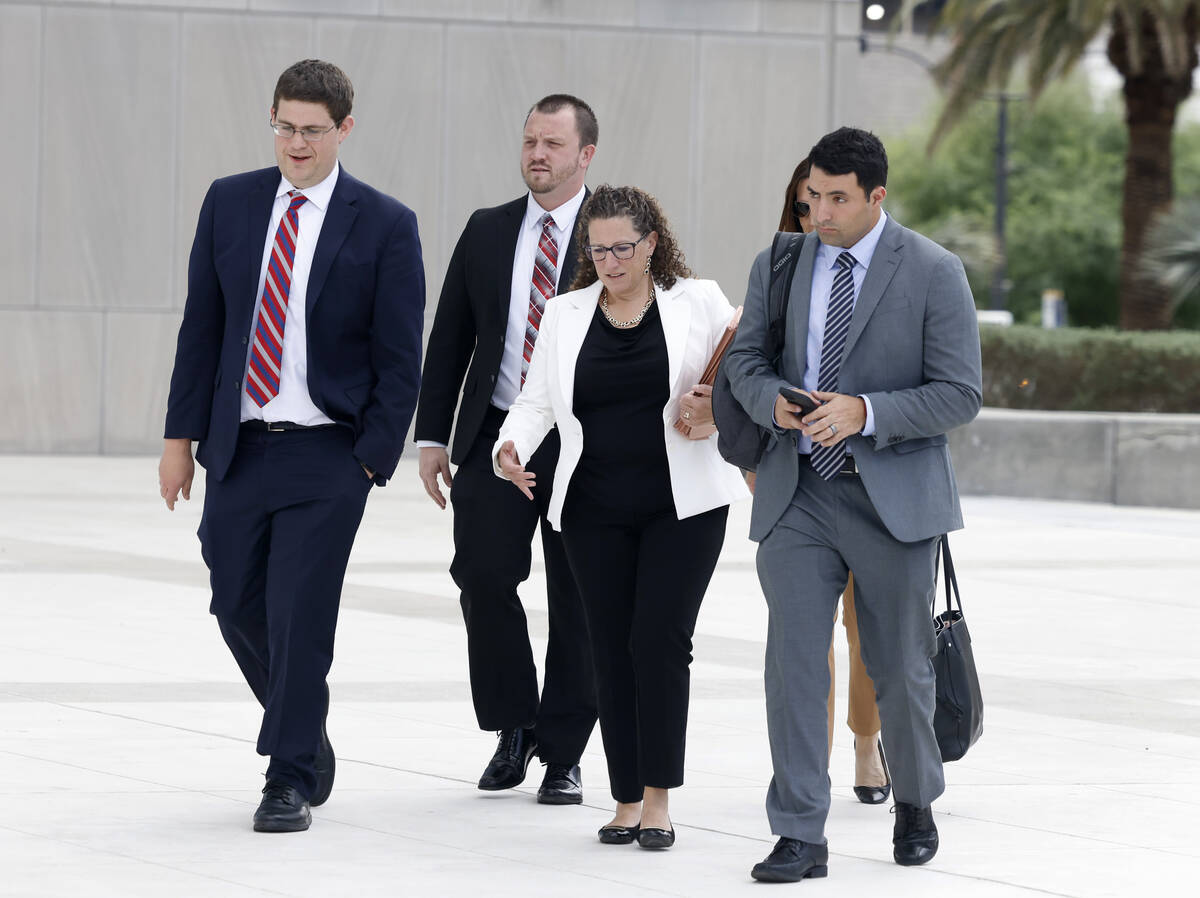Fraud trial for ex-councilwoman Michele Fiore set to start
Former Las Vegas city councilwoman Michele Fiore’s attorney and federal prosecutors are preparing for her wire fraud trial, scheduled to start on Tuesday although some issues about what evidence can be introduced have still not been resolved after a Friday hearing in federal court.
In July, a federal grand jury indicted Fiore, 53, of Pahrump, on wire fraud and conspiracy charges. She raised tens of thousands of dollars for a statue of fallen Metropolitan Police Department Officer Alyn Beck but spent it on herself and her daughter’s wedding, prosecutors have alleged.
Fiore has pleaded not guilty. She most recently served as a justice of the peace in Pahrump, but was suspended by the Nevada Commission on Judicial Discipline after her indictment.
U.S. District Judge Jennifer Dorsey said Friday that she plans to call about 70 potential jurors, with a reserve pool available if necessary.
Fiore’s attorney, Michael Sanft, told the judge he expects the trial to last about two and a half weeks.
‘Repeatedly defrauded donors,’ prosecutors say
Dorsey issued an order Wednesday ruling on disputes between prosecutors and the defense about what attorneys can present. She said Beck’s widow, Nicole Beck, could testify at trial. She also ruled that Fiore could not use arguments about a selective prosecution theory or her involvement with the Bundy family, whom Fiore supported in their 2014 conflict with the federal government.
But Dorsey did not make a decision about whether prosecutors could introduce evidence pertaining to the allegations that Fiore was converting campaign and political action committee donations for personal use, laundering the money through “myriad entities” and falsifying campaign finance reports “to conceal that wrongdoing.”
Proof of such wrongdoing would be admissible, but prosecutors have “not yet shown that the evidence is sufficient to support a finding that Fiore committed those alleged acts,” she said in her order.
“Fiore has repeatedly defrauded donors to her campaigns, her political action committee, and even her Section 501(c)(3) charity by secretly diverting hundreds of thousands of dollars in contributions to those entities for her personal use,” prosecutors have alleged. “This has enabled the defendant to live beyond her means, using donor money to pay for rent, plastic surgery, vacations, and her daughter’s wedding.”
‘Highly prejudicial’
Dahoud Askar told the judge prosecutors would be able to satisfy the threshold for admissibility primarily through records already subject to an agreement between the defense and prosecution. Prosecutors anticipate being able to show a difference between what was reported and what Fiore actually spent money on, he said.
Prosecutors and Sanft have agreed that a number of pieces of evidence are authentic, though they can still challenge their admission on other grounds.
Sanft has argued prosecutors should not be allowed to introduce evidence about Fiore’s financial transactions “before the event regarding the statue.”
Sanft said in court that political action committee and campaign contributions are governed by state law. He said that the government can’t prove transfers from PACs or a campaign were bad acts because the law permits a broad use of the funds.
The prosecution wants to present records to the jury they never used to get a previous indictment, Sanft said, adding, “I think it would be highly prejudicial.”
When one donates to a PAC or campaign, they donate to a theme, he told the Review-Journal after the hearing. As long as it’s not for personal reasons, a transfer from a PAC or campaign for something else in that same vein is legal, he said.
Askar argued state law doesn’t remove the need to follow wire fraud laws. He also said he didn’t think Sanft was interpreting the law accurately.
Dorsey said she would likely rule at the start of the trial and told attorneys they should be prepared to change their opening statement in case she prevents some evidence from being used.
Contact Noble Brigham at nbrigham@reviewjournal.com. Follow @BrighamNoble on X.


